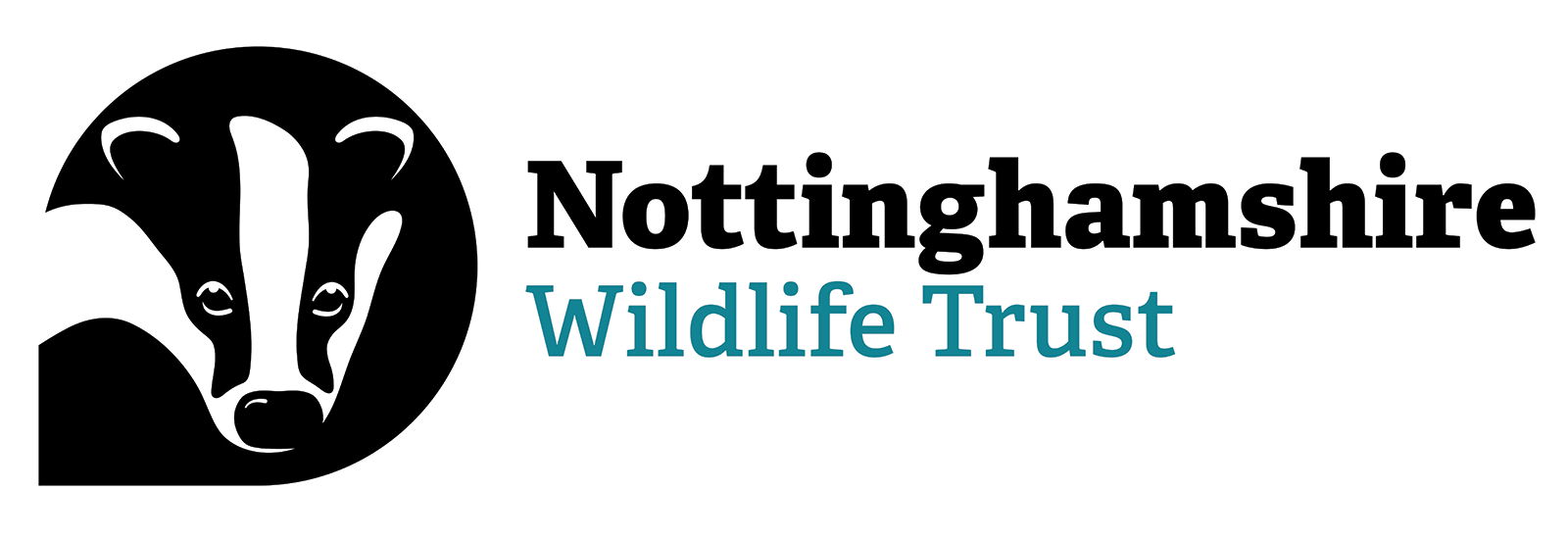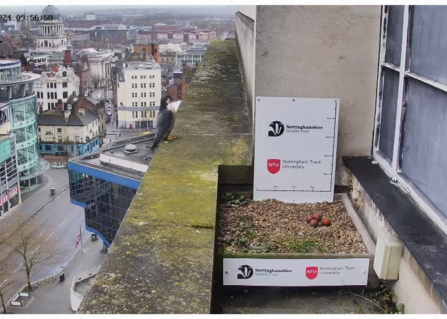A peregrine nest high on the side of Nottingham Trent University’s Newton Building in the centre of Nottingham has provided eager wildlife watchers with joy and excitement over the Easter Holidays - with four eggs laid between the 26th March and 3rd April – including eggs on both Good Friday and Easter Sunday.
Just as many families were sharing Easter Eggs on Sunday morning, the peregrines, a protected species, welcomed their 3rd egg. Whilst many avid watchers might have thought that three would be the magic number this year, the pair had a further gift in store, with a fourth egg arriving in the early hours of April 3rd.
With 3-4 eggs being typical for wild peregrines, it is likely that the flurry of egg laying activity is over for 2024. The pair will now incubate the eggs for around 30 days – with chicks expected to hatch in early May.

